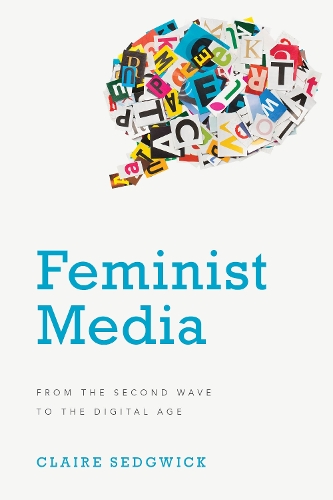
Feminist Media: From the Second Wave to the Digital Age
(Paperback)
Available Formats
Publishing Details
Feminist Media: From the Second Wave to the Digital Age
By (Author) Claire Sedgwick
Bloomsbury Publishing PLC
Rowman & Littlefield International
10th August 2020
United Kingdom
Classifications
Professional and Scholarly
Non Fiction
Feminism and feminist theory
Gender studies, gender groups
302.23082
Physical Properties
Paperback
160
Width 154mm, Height 224mm, Spine 15mm
322g
Description
Feminist Media: From the Second Wave to the Digital Age analyses the relationship between second wave feminist media production and capitalism, as well as identifying the tradition that can be drawn between second wave feminism, Riot Grrrl and feminist blogging today. There has been a recent re-evaluation of the importance of second wave feminist media, demonstrated by the digitization of Spare Rib by the British Library in 2015. However, up until now, research on the magazine has been limited.
This book analyses the relationship between Spare Rib and the capitalist publishing industry, comparing it to American feminist magazine Ms. The book argues that it is important to understand the cultural economies of the magazines as this had an impact on the assumed readership of the magazines, therefore having an impact on the issues that were privileged. The second half of the book charts a crucial and often overlooked link between feminist media production in the second wave and more contemporary forms of feminist media activism.
Reviews
"Rather than a mere surface-level content analysis, Feminist Media engages feminist critical discourse analysis to read the absences within [feminist] publications, including what they did not cover or covered only peripherally (namely race, politics, and pornography). This allows Sedgwick to nuance established histories of Second Wave feminism that can stereotype the movement as a politically radical, but uniform, group.... Sedgwick's analysis is useful for historians of feminist media (and of the larger feminist movement), media historians studying magazines, and cultural and Marxist media scholars who seek to understand how media publications work against yet within capitalism. The extensive archival work uncovered a range of dissenting and competing viewpoints on many of the Second Wave's principal concerns (including race, radical politics, sex work, and pornography), which challenges existing histories that homogenize that era of feminism. Sedgwick uses those discoveries to make a larger call to maintain physical and digital archives so future scholars can return to original material rather than rely on tomorrow's established histories." --American Journalism
Rather than a mere surface-level content analysis, Feminist Media engages feminist critical discourse analysis to read the absences within [feminist] publications, including what they did not cover or covered only peripherally (namely race, politics, and pornography). This allows Sedgwick to nuance established histories of Second Wave feminism that can stereotype the movement as a politically radical, but uniform, group.... Sedgwick's analysis is useful for historians of feminist media (and of the larger feminist movement), media historians studying magazines, and cultural and Marxist media scholars who seek to understand how media publications work against yet within capitalism. The extensive archival work uncovered a range of dissenting and competing viewpoints on many of the Second Wave's principal concerns (including race, radical politics, sex work, and pornography), which challenges existing histories that homogenize that era of feminism. Sedgwick uses those discoveries to make a larger call to maintain physical and digital archives so future scholars can return to original material rather than rely on tomorrow's established histories.
Author Bio
Claire Sedgwick is a Teaching Associate in the Department of Cultural, Media and Visual Studies, University of Nottingham, UK.
